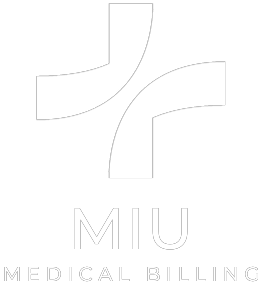Introduction
Medical billing specialists have significant responsibilities in today’s healthcare facilities, where everything is interrelated and interconnected. These professionals act as the middle link between the providers of the health services and the users, together with the insurance firms. An MBS promotes the complicated process of filing and tracking claims to insurance providers to be paid for the services provided by healthcare facilities. Its professionals make substantial input in maintaining the financial affairs of medical practices and hospitals.
The Core Responsibilities of a Medical Billing Specialist

Medical billing specialists perform various vital functions in health facilities’ revenue cycles. They analyze the patients’ records and develop the correct medical codes for diagnosis and treatment. A medical claims specialist is supposed to process and submit claims to an insurance company; he or she must do it right and in compliance with the relevant billing codes. They also monitor the claims, ensure they follow up on the payment delist or pending payments, and sort out any issues. This is in addition to informing and educating patients on the bills and insurance coverage to enable them to know what they are charged with.
Skills and Qualifications for Success as a Medical Billing Specialist
Hence, a medical billing administrative specialist must have specific skills to work in this field. There is immense pressure in terms of billing, and any mistake made may have severe financial and legal implications. To be able to do this, a medical billing specialist must have good analytical skills to analyze medical records and insurance policies. Knowledge of medical coding systems and most medical billing software is mandatory for the job. Furthermore, for this job, a billing specialist should possess good communication skills to communicate with doctors, other healthcare providers, patients, and insurance providers.
The Impact of Technology on the Billing Specialist Role
Indeed, technology has become one of the determinants of medical billing specialists in recent years. It is normalized for Electronic Health Records (EHRs), while advanced billing software has simplified other processes. Medical billing specialists must cope with these technological changes by utilizing them for increased efficiency and fewer mistakes. The utilization of billing with artificial intelligence and machine learning has created the need for medical billing specialists to acquire new data analysis and interpretation skills. However, being a human in the profession is crucial in the medical billing specialist since it entails direct interaction with the client and requires the ability to solve different complicated issues.
Medical Billing Specialist Training and Certification
Thus, a question that keeps budding professionals asking is: What are the available medical billing specialist training programs? Some attend a community college to earn an associate degree or a certification program in medical billing and coding. These programs encompass areas of study like medical vocabulary, human bodily structure, computer languages, and medical laws. One can also receive an added certification as a certified coding specialist, which will help enhance your career. A medical billing specialist must update themselves with new policies and coding systems in the healthcare sector through ongoing education. Several associations provide various certification programs for medical billing specialists, such as Certified Professional Biller (CPB), which has the potential to advance significantly a professional’s career.
The Role of a Medical Billing Specialist in Ensuring Compliance
A medical billing specialist needs to understand compliance provisions in the healthcare sector. They have to know the current changes in laws regarding health care and insurance policies. A medical billing specialist ensures that all or some of the billing procedures are HIPAA compliant to avoid violating patient’s rights and fraud. They have a significant role in auditing billing activities, determining compliance concerns, and determining steps to rectify them. Whether it is a large or small healthcare provider, a medical billing specialist plays a vital role in ensuring that it does not receive penalties that may be a result of negligence while, at the same time, ensuring that the company’s reputation is well maintained.
Career Growth and Specialization for Billing Specialists

The field is, therefore, characterized by several career growth prospects. A medical billing specialist can opt to be promoted to managerial positions whereby he or she supervises operations of billing departments within a large medical facility. Some may be more specific, such as insurance billing specialists, and deal in insured claims and appeals. Some might be working as medical billing and insurance specialists to handle the billings of the patients and their insurance firms. Through experience working in the healthcare industry, a medical billing expert can easily become a medical billing consultant who offers services to various healthcare organizations. Diversity of career options enables medical billing specialists to locate their areas of interest and strength.
Conclusion:
Therefore, it can be concluded that the medical billing specialist is a crucial figure in the complex healthcare system. This is also possible through professionals who, among other things, ensure that healthcare providers are adequately compensated for their services, hence benefiting the financial aspect of practices. A medical billing specialist’s job is not just to crunch numbers; they represent the patient and providers in a highly entangled medical billing process. The need for proper medical billing specialists will always rise with the continuous changes in the healthcare industry. They effectively help a lot in the complex structure of medical codes, insurance providers, and health care laws that are hard to decipher, making them very important in providing health care services.




